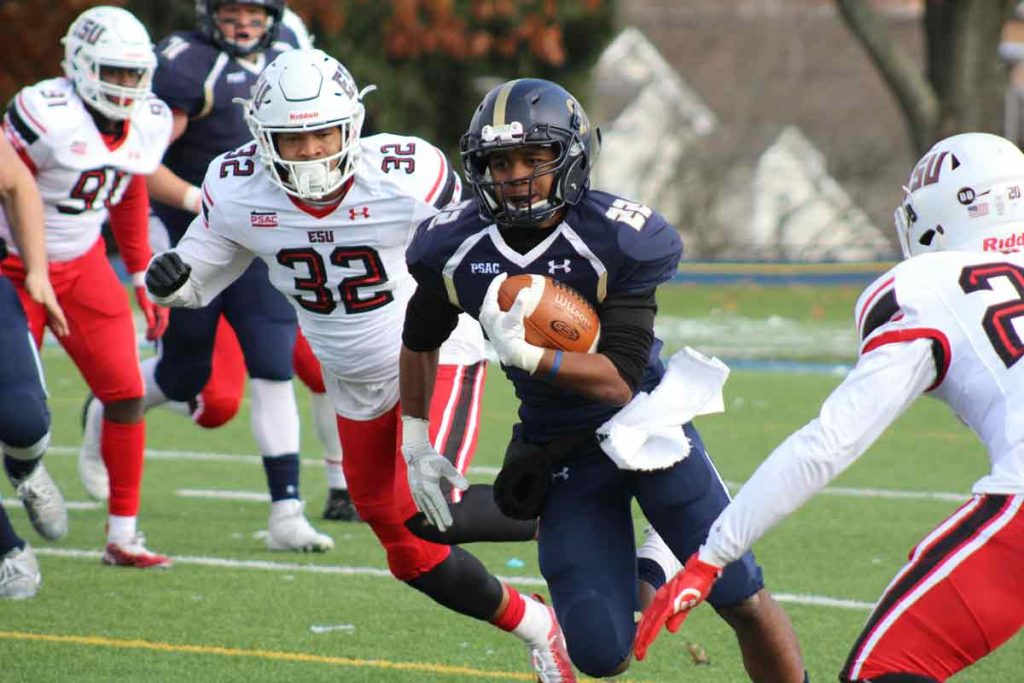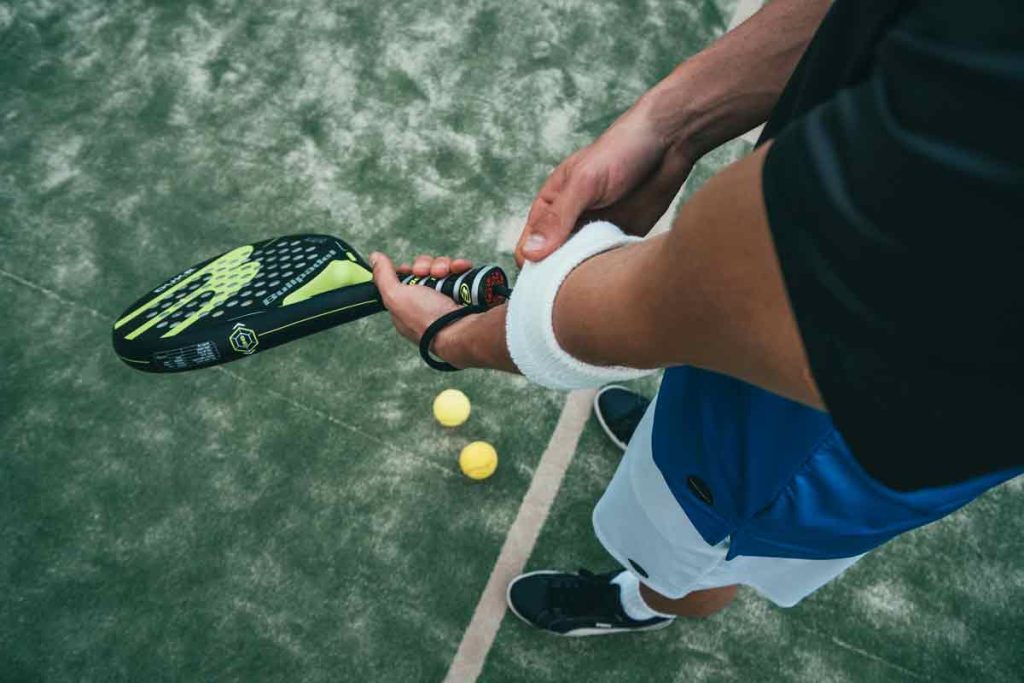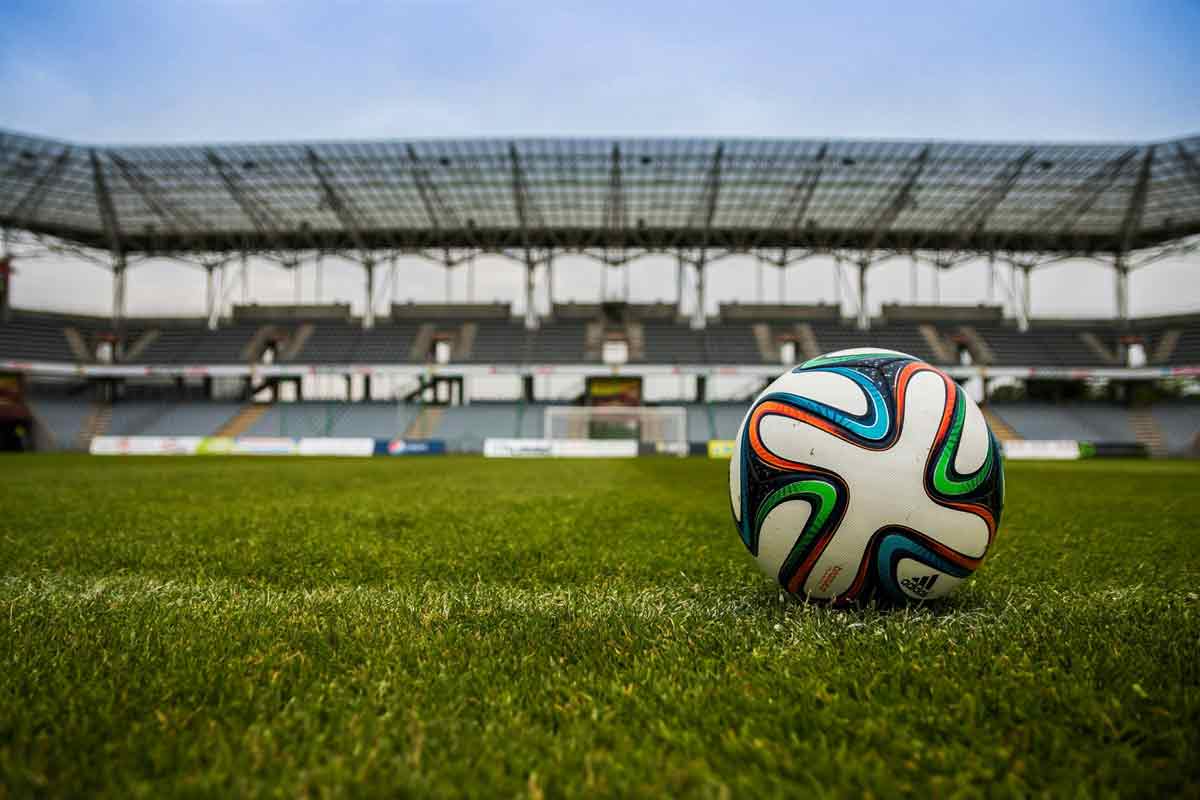Paragraph On Importance Of Sports
Sports have long been celebrated for their ability to bring people together, ignite passion, and showcase the incredible feats of human athleticism. From the nail-biting tension of a last-minute goal to the graceful precision of a perfectly executed dive, sports capture our imagination and push our physical limits.
From my paragraph on the importance of sports, we will know further.
| Name | Why This Sport Important? |
|---|---|
| Basketball | Promotes teamwork, coordination, and cardiovascular health. Develops agility, endurance, and strategic thinking. |
| Volleyball | Enhances teamwork, communication, and reflexes. Improves hand-eye coordination and cardiovascular fitness. |
| Baseball | Fosters teamwork, hand-eye coordination, and strategic thinking. Encourages physical fitness and discipline. |
| Bowling | Develop strength, flexibility, and balance. Enhances body awareness and coordination. Fosters discipline and confidence. |
| Badminton | Improves agility, speed, and hand-eye coordination. Enhances cardiovascular health and reflexes. |
| Football | Promotes teamwork, discipline, and leadership skills. Builds strength, endurance, and strategic thinking. |
| Golf | Cultivates focus, patience, and precision. Enhances mental discipline and stress relief. Improves balance and coordination. |
| Cricket | Enhances teamwork, hand-eye coordination, and concentration. Promotes physical fitness and strategic thinking. |
| Gymnastics | Develop strength, flexibility, and balance. Enhances body awareness and coordination. Enrich discipline and confidence. |
| Lacrosse | Promotes teamwork, agility, and hand-eye coordination. Builds cardiovascular fitness and strategic thinking. |
| Rugby | Builds teamwork, strength, and endurance. Enhances mental toughness and discipline. Promotes physical fitness and camaraderie. |
| Boxing | Improves strength, agility, and reflexes. Enhances cardiovascular health and self-discipline. |
| Hockey | Cultivates teamwork, speed, and agility. Enhances hand-eye coordination and cardiovascular fitness. |
| Table Tennis | Enhances hand-eye coordination, reflexes, and focus. Provides cardiovascular exercise and stress relief. |
| Archery | Improves focus, patience, and mental discipline. Enhances upper body strength and hand-eye coordination. |
| Canoeing | Promotes physical fitness, teamwork, and coordination. Provides opportunities for outdoor recreation and adventure. |
| Handball | Fosters teamwork, speed, and agility. Improves hand-eye coordination and cardiovascular health. |
| Sailing | Enhances problem-solving skills, patience, and adaptability. Provides opportunities for outdoor recreation and exploration. |
| Softball | Builds teamwork, hand-eye coordination, and strategic thinking. Promotes physical fitness and social interaction. |
| Swimming | Improves cardiovascular health, endurance, and muscle strength. Enhances coordination and flexibility. |
| Tennis | Cultivates hand-eye coordination, agility, and strategic thinking. Provides cardiovascular exercise and stress relief. |
| Skiing | Enhances balance, coordination, and lower body strength. Provides opportunities for outdoor recreation and adventure. |
| Soccer | Promotes teamwork, agility, and cardiovascular fitness. Enhances coordination, endurance, and strategic thinking. |
| Cycling | Improves cardiovascular health, leg strength, and endurance. Provides opportunities for transportation and recreation. |
Paragraph On Importance Of Sports 100 Words
Appreciating why sports matter is really important. Sports are more than just competing – they teach us amazing things about teamwork, leadership, and not giving up. Playing sports helps us stay fit, makes us feel less stressed, and keeps us healthy overall. It also makes us feel like we belong and have friends in our communities. When we play sports, we learn skills that help us grow and become better people.
So, being part of sports makes life more fun and gets us ready for whatever comes our way, helping us do well in lots of different parts of life!
Paragraph On Importance Of Sports 150 Words
Sports are not only games they are a cornerstone of society, offering a plethora of benefits that extend far beyond the field or court. Firstly, they promote physical well-being, encouraging active lifestyles and combating sedentary habits. Additionally, sports instill invaluable life skills such as teamwork, leadership, and communication, fostering personal growth and resilience. Furthermore, they catalyze social cohesion, bridging divides and fostering inclusivity within communities.
Particularly for youth, sports offer opportunities for learning, self-discovery, and character development, nurturing qualities essential for success in later life. Moreover, sports contribute significantly to economic development and cultural enrichment, generating revenue, stimulating tourism, and fostering cultural exchange. In essence, sports embody a diverse tapestry of values that enrich individuals and societies alike, serving as a unifying force that transcends barriers and inspires collective progress.
Moreover, the importance of sports is not just about competition or entertainment; it’s about fostering healthier, stronger, and more connected communities for generations to come.

Paragraph On Importance Of Sports 200 Words
Sports are an integral part of human life, offering a multitude of benefits that extend beyond physical health. Among the diverse array of sports, including cricket, football, badminton, golf, baseball, basketball, tennis, hockey, and volleyball, each holds its unique appeal and contributions to society.
Firstly, participation in sports encourages physical fitness, promoting cardiovascular health, strength, and agility. This not only enhances individuals’ overall well-being but also reduces the risk of chronic diseases such as obesity and diabetes.
Moreover, sports serve as powerful tools for character development, teaching invaluable lessons in teamwork, discipline, and perseverance. Athletes learn to navigate challenges, setbacks, and triumphs, building resilience and determination that translate into various facets of life. Additionally, sports have a unifying effect, transcending cultural, social, and geographical boundaries.
They bring people together, nourishing a sense of community and camaraderie among participants and spectators alike. Furthermore, sports serve as avenues for personal growth and self-expression, allowing individuals to discover and hone their talents while pursuing their passions.
Whether as players or fans, engagement in sports ignites a sense of joy, excitement, and pride, creating lasting memories and connections. In essence, the importance of sports lies not only in their physical and mental benefits but also in their capacity to inspire, unite, and enrich lives across the globe.
Importance Of Sports Paragraph 300 Words
In a world constantly bustling with various activities, sports stands out as a universal language, transcending boundaries of age, gender, and culture. Beyond the exhilarating moments on the field or court, sports play a pivotal role in shaping societies, economies, and individuals. From fostering social cohesion to promoting physical well-being, the significance of sports permeates every aspect of human life.
Sports serve as a binding force, uniting individuals from diverse backgrounds under a common passion. Whether it’s cheering for a local team or participating in recreational leagues, sports foster a sense of belonging and camaraderie. Through teamwork and shared experiences, people forge lasting connections, breaking down barriers of prejudice and fostering inclusivity within communities.
The economic footprint of sports is substantial, ranging from professional leagues to grassroots initiatives. Major sporting events stimulate local economies through tourism, infrastructure development, and job creation. Moreover, sports-related industries such as apparel, equipment, and broadcasting contribute significantly to global economies, driving innovation and employment opportunities.
Sports have long served as a platform for diplomatic initiatives and international cooperation. Events like the Olympics and World Cup transcend geopolitical tensions, fostering dialogue and promoting peace. Through cultural exchanges and friendly competitions, nations build bridges and enhance mutual understanding, showcasing the power of sports as a tool for diplomacy and soft power projection.
The health benefits of sports extend far beyond the physical realm. Regular participation in sports not only improves cardiovascular health, strength, and flexibility but also enhances mental well-being. Exercise releases endorphins, reducing stress and anxiety while boosting mood and self-esteem. Moreover, sports instill discipline, resilience, and goal-setting skills, nurturing holistic development and empowering individuals to overcome challenges both on and off the field.
Sports offer invaluable educational experiences, teaching crucial life lessons such as teamwork, leadership, and sportsmanship. In schools, athletic programs promote academic success by fostering discipline, time management, and goal-oriented behavior. Moreover, sports scholarships provide access to higher education for countless individuals, opening doors to personal and professional growth opportunities.

Word Meaning Helpful for Kids
| Word | Meaning |
|---|---|
| Sports | Activities involving physical exertion and skill, typically competitive in nature, with rules and organized participation. |
| Importance | The significance or value of something, the quality of being significant or of great consequence. |
| Physical | Relating to the body as opposed to the mind; bodily. |
| Well-being | The state of being comfortable, healthy, or happy. |
| Teamwork | Cooperative or coordinated effort on the part of a group of persons acting together as a team or in the interests of a common cause. |
| Leadership | The action of leading a group of people or an organization, the state or position of being a leader. |
| Stress | A state of mental or emotional strain or tension resulting from adverse or demanding circumstances. |
| Healthy | In good physical or mental condition; in a state of well-being. |
| Community | A group of people living in the same place or having a particular characteristic in common, a feeling of fellowship with others, as a result of sharing common attitudes, interests, and goals. |
| Skills | The ability to do something well, expertise, proficiency, or dexterity that is acquired or developed through training or experience. |
| Fun | Enjoyment, amusement, or lighthearted pleasure. |
| Economic | Relating to economics or the economy. |
| Development | The process of developing or being developed, growth, progress, or advancement, typically in a specific direction or towards a goal. |
| Cultural | Relating to the ideas, customs, and social behavior of a society. |
| Exchange | The act of giving one thing and receiving another (especially of the same kind) in return, a reciprocal transfer of goods, services, or ideas. |
| Diplomacy | The profession, activity, or skill of managing international relations, typically by a country’s representatives abroad. |
| Cooperation | The process of working together to the same end. |
| Health | The state of being free from illness or injury, a person’s mental or physical condition. |
| Education | The process of receiving or giving systematic instruction, especially at a school or university. |
| Scholarship | An award of financial aid for a student to further their education. |
What is Sports?
Sports have long been a cornerstone of human civilization, transcending boundaries of language, culture, and geography to bring people together in the shared pursuit of physical excellence and competitive thrill. From ancient gladiators battling for glory in the Colosseum to modern-day athletes breaking world records on global stages, sports have evolved into a multifaceted phenomenon that captivates hearts and minds worldwide.
But what truly defines sports? Is it the adrenaline-pumping races on the track, the strategic maneuvers on the field, or the graceful movements on the court? Delving into this question unveils a complex tapestry of athleticism, teamwork, passion, and resilience that forms the essence of this timeless human endeavor.
History of Sports
| Sport | Key Events and Developments in Sport History |
|---|---|
| Ancient Sports | – Birth of the Olympic Games in Ancient Greece (776 BC) |
| – Athletic competitions: running, wrestling, boxing | |
| – Chariot racing in Ancient Rome | |
| Basketball | – Invented by James Naismith in 1891 as a way to keep athletes active indoors |
| – First official game played in December 1891 | |
| Volleyball | – Invented by William G. Morgan in 1895 as an indoor sport combining elements of basketball, baseball, tennis, and handball |
| – Originally called “mintonette” before being renamed volleyball | |
| Baseball | – Evolution from various bat-and-ball games in England in the 18th century |
| – Formalized rules established in the mid-19th century | |
| Bowling | – Origins date back to ancient civilizations like Egypt and Rome |
| – Modern standardized rules developed in the United States in the 19th century | |
| Badminton | – Originated in British India as a pastime for British military officers in the mid-19th century |
| – Formalized rules established in England in the late 19th century | |
| Football | – Diverse origins including various ball games played in medieval Europe |
| – Codification of rules in England in the 19th century led to the modern game of association football (soccer) | |
| Golf | – Origins in Scotland with games like “gowf” dating back to the 15th century |
| – Modern rules and standardized courses developed in the 18th and 19th centuries | |
| Cricket | – Evolved from medieval bat-and-ball games in England |
| – Codification of rules in the 18th century led to the establishment of modern cricket | |
| Gymnastics | – Ancient origins in activities like acrobatics and tumbling |
| – Formalization of gymnastic exercises in 18th-century Europe, leading to the development of modern gymnastics | |
| Lacrosse | – Indigenous North American origins with games played by various Native American tribes |
| – Codification of rules and modernization of the sport in the 19th century | |
| Rugby | – Emerged from traditional ball games played in England, particularly Rugby School |
| – Formalization of rules in the 19th century led to the split between rugby union and rugby league | |
| Boxing | – Ancient origins with evidence of boxing-like contests dating back to antiquity |
| – Codification of modern rules and weight classes in the 19th and 20th centuries | |
| Hockey | – Various forms of stick-and-ball games played in ancient civilizations |
| – Evolution into modern ice hockey, field hockey, and other variants in the 19th and 20th centuries | |
| Table Tennis | – Origins in England as an indoor version of lawn tennis in the late 19th century |
| – Formalized rules and standardization of equipment in the early 20th century | |
| Archery | – Ancient practice dating back thousands of years, used for hunting and warfare |
| – Evolution into a sport with standardized rules and competitions in the modern era | |
| Canoeing | – Traditional means of transportation and hunting in indigenous cultures worldwide |
| – Formalization of canoe racing and other competitive disciplines in the 19th and 20th centuries | |
| Handball | – Ancient origins with games resembling handball played by various cultures |
| – Formalization of modern handball rules and competitions in the 19th century | |
| Sailing | – Ancient practice of using wind to propel boats, dating back to prehistoric times |
| – Development of modern sailing techniques and competitive sailing events in the 18th and 19th centuries | |
| Softball | – Derived from baseball with origins in the late 19th century, particularly in the United States |
| – Formalized rules and establishment of international softball organizations in the 20th century | |
| Swimming | – Ancient practice with evidence of swimming depicted in cave paintings and ancient texts |
| – Organization of formal swimming competitions and the development of swimming strokes in the 19th century | |
| Tennis | – Evolved from various ball games played in Europe in the Middle Ages |
| – Standardization of rules and equipment in the late 19th century, leading to the modern game of tennis | |
| Skiing | – Ancient practice of using skis for transportation and hunting in snowy regions |
| – Evolution into a recreational and competitive sport with various disciplines such as alpine skiing, cross-country skiing, and ski jumping | |
| Soccer | – Diverse origins including various ball games played in ancient civilizations |
| – Codification of rules in England in the 19th century led to the modern game of association football (soccer) | |
| Cycling | – Emergence of early bicycles in the 19th century, leading to the development of competitive cycling |
| – Standardization of rules and establishment of cycling events like the Tour de France in the late 19th and early 20th centuries |

List of All Major Sports and Their Benefits
| Sport | Description | Benefits |
|---|---|---|
| Adventure Racing | A multi-disciplinary team sport involving navigation over an unmarked wilderness course, often incorporating activities such as running, biking, and paddling. | Increases aerobic fitness, builds muscle strength and endurance, enhances agility and coordination, and improves bone density and cardiovascular health. |
| Archery | Enhances focus and concentration, promotes upper body strength, improves hand-eye coordination, and fosters mental discipline and relaxation. | Enhances focus and concentration, promotes upper body strength, improves hand-eye coordination, and stimulates mental discipline and relaxation. |
| Australian Football | A fast-paced contact sport played on an oval-shaped field, involving kicking and handballing a ball between teammates to score points. | Improves cardiovascular health, enhances reflexes and agility, builds muscle strength and endurance, and promotes hand-eye coordination and mental alertness. |
| Badminton | A racquet sport played with a shuttlecock requires agility and accuracy to hit the shuttlecock over the net and into the opponent’s court. | A bat-and-ball game played between two teams, involves hitting a ball with a bat and running around a series of bases to score runs. |
| Baseball | A bat-and-ball game played between two teams, involving hitting a ball with a bat and running around a series of bases to score runs. | Improves cardiovascular health, enhances agility and coordination, builds muscle strength and endurance, and promotes teamwork and communication skills. |
| Basketball | A team sport played on a rectangular court, involves shooting a ball through a hoop while adhering to various rules and strategies. | Promotes muscle strength and endurance, improves hand-eye coordination, enhances balance and flexibility, and fosters social interaction and stress relief. |
| Bowling | A sport or leisure activity in which a player rolls or throws a bowling ball towards pins to knock them down in organized competition or recreation. | Increases cardiovascular fitness, builds muscle strength and endurance, improves coordination and agility, and enhances mental focus and discipline. |
| Boxing | A combat sport involving two opponents throwing punches at each other within a roped-off square ring, aiming to score points by landing blows on the opponent. | Improves cardiovascular health, enhances upper body and core strength, promotes balance and coordination, and provides stress relief and mental relaxation. |
| Canoeing | Enhances balance and flexibility, promotes muscle strength and endurance, provides low-impact aerobic exercise, and enriches social interaction and mental focus. | Promotes hand-eye coordination, builds muscle strength and endurance, improves cardiovascular health, and fosters teamwork and strategic thinking. |
| Cricket | A water sport involving paddling a canoe or kayak through water is often practiced in various disciplines such as sprint, slalom, and marathon racing. | A water sport involving moving through water using the limbs is often practiced competitively in various strokes such as freestyle, breaststroke, backstroke, and butterfly. |
| Curling | A team sport played on a rectangular field, involves kicking a ball into the opposing team’s goal to score points, typically using feet or, in some variations, hands. | Improves cardiovascular health, enhances agility and coordination, builds muscle strength and endurance, and fosters discipline and mental focus. |
| Fencing | A combat sport involving two opponents using bladed weapons to score points by making contact with their opponent’s body while adhering to rules and techniques. | Increases cardiovascular fitness, builds muscle strength and endurance, enhances agility and coordination, and promotes teamwork and strategic thinking. |
| Football | A precision club-and-ball sport played on a course to hit the ball into each hole in the fewest strokes possible, using a variety of clubs. | A team sport played on ice, where players slide stones toward a target area while teammates use brooms to sweep the ice in front of the stone to control its path. |
| Golf | A precision club-and-ball sport played on a course with the goal of hitting the ball into each hole in the fewest strokes possible, using a variety of clubs. | Improves flexibility and balance, builds muscle strength and endurance, enhances coordination and agility, and promotes bone density and mental focus. |
| Gymnastics | A sport involving various exercises and movements requiring physical strength, flexibility, and coordination, typically performed on apparatus or in floor routines. | Promotes cardiovascular health, builds muscle strength and flexibility, enhances coordination and reflexes, and fosters discipline and mental focus. |
| Hockey | A bat-and-ball game played between two teams, involves hitting a ball with a bat and running between wickets to score runs while the opposing team fields and bowls. | Increases cardiovascular fitness, builds muscle strength and endurance, enhances agility and coordination, and fosters teamwork and strategic thinking. |
| Karate | A martial art characterized by striking, kicking, and defensive techniques, often practiced as a means of self-defense, physical fitness, or competitive sport. | Increases cardiovascular fitness, builds muscle strength and endurance, enhances agility and coordination, and nurtures teamwork and strategic thinking. |
| Lacrosse | A team sport played with a small rubber ball and a long-handled stick, involving passing, catching, and shooting the ball into the opposing team’s goal to score points. | Improves cardiovascular health, enhances lung capacity and efficiency, promotes weight loss and muscle tone, and reduces stress and anxiety levels. |
| Running | A form of locomotion involving rapid movement on foot, often practiced competitively in various distances such as sprints, middle, and long-distance races. | A racket sport played on a rectangular court, involves hitting a ball back and forth over a net using a racket, with the goal of landing the ball in the opponent’s court. |
| Softball | A variant of baseball played with a larger ball on a smaller field, involving hitting the ball with a bat and running around bases to score runs, typically with underhand pitching. | Enhances hand-eye coordination, improves reflexes and agility, provides aerobic exercise, and fosters mental alertness and concentration. |
| Swimming | A fast-paced team sport played on a field or ice rink, involves using a stick to hit a ball or puck into the opposing team’s goal to score points. | Improves cardiovascular health, enhances muscle strength and endurance, promotes flexibility and joint mobility, and provides a low-impact full-body workout. |
| Table Tennis | A fast-paced racket sport played on a table, involving hitting a lightweight ball back and forth over a net using small bats, requiring quick reflexes and precise control. | A racket sport played on a rectangular court, involves hitting a ball back and forth over a net using a racket, to land the ball in the opponent’s court. |
| Tennis | A racket sport played on a rectangular court, involves hitting a ball back and forth over a net using a racket, to land the ball in the opponent’s court. | A water sport involving moving through water using the limbs, is often practiced competitively in various strokes such as freestyle, breaststroke, backstroke, and butterfly. |
Conclusion
In essence, the importance of sports transcends mere entertainment; it is a powerful catalyst for positive change across various spheres of society. From promoting social cohesion and economic growth to fostering physical and mental well-being, sports enrich lives and communities in myriad ways.
As we continue to recognize and harness the transformative potential of sports, we pave the way for a healthier, more inclusive, and prosperous future for all.
I hope you like my paragraph on the importance of sports.







